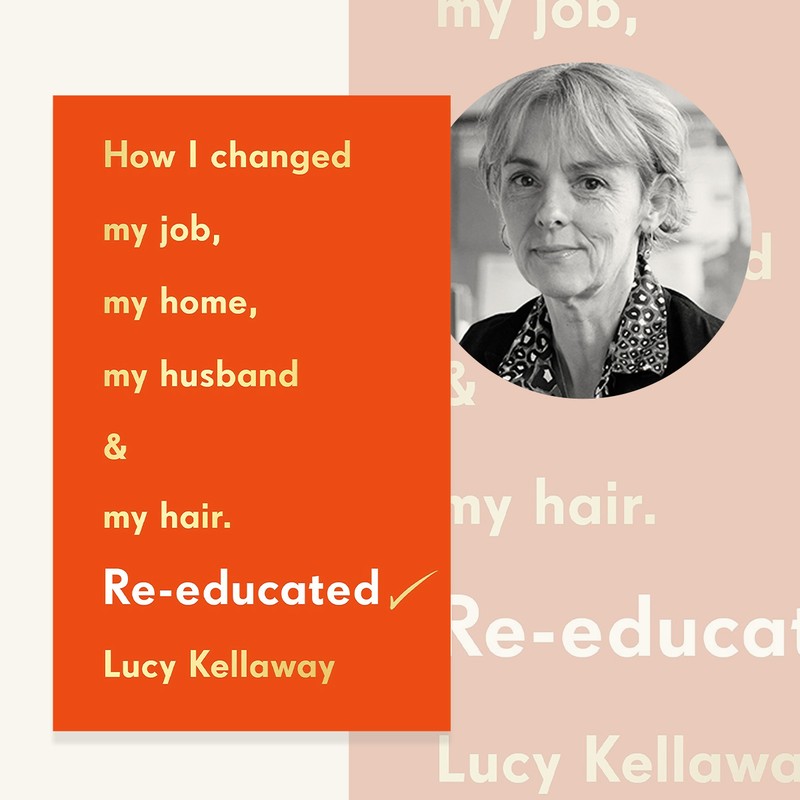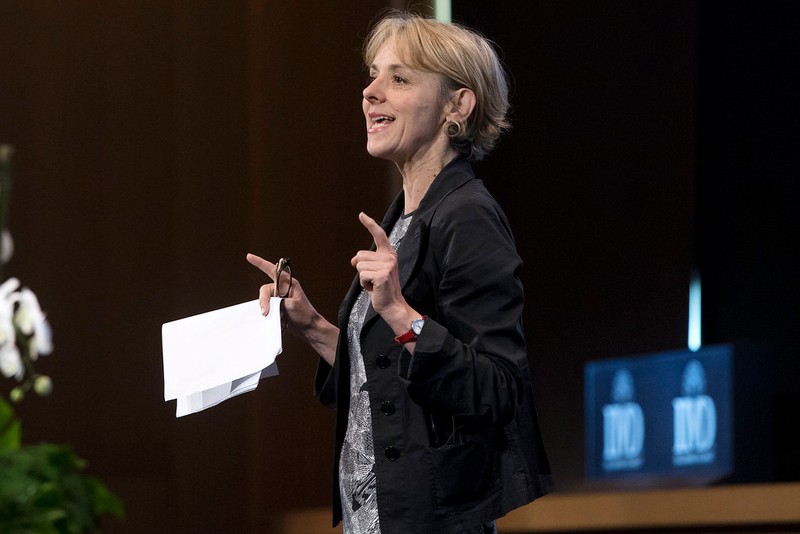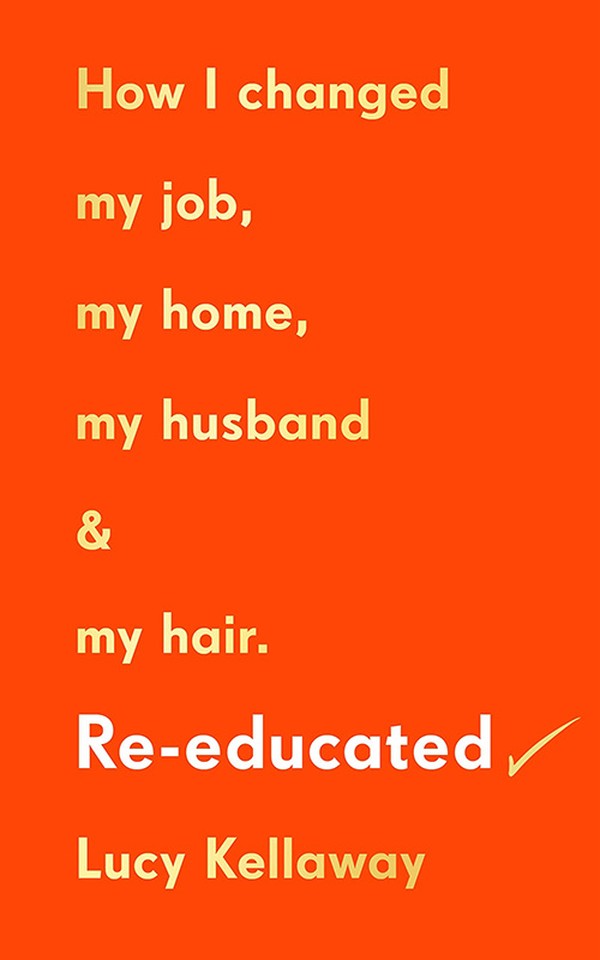
What It Means To Change Your Life In Your 50s
A few years ago, I had a very stable life. I was living with my husband and four children in a big Victorian house in Highbury. We’d been married for 25 years, and I’d been working at the Financial Times for even longer – writing the same weekly column for close to three decades. It felt like the kind of life that was fixed in place forever.
But I started to exhibit some classic signs of burnout. Writing the same thing week in week out had become very draining, and I was dreading people noticing how much I wasn’t enjoying it. All the status and glamour of working for a national newspaper – things I’d initially loved – started to fall away. Safe to say, I was pretty unhappy.
After nearly three decades, I quit my job. To mark my departure, I wrote a proselytising column announcing I was leaving to set up my own teaching business – Now Teach – and encouraging like-minded individuals to join me. It created a huge amount of publicity but not everyone was supportive. In fact, one journalist wrote at the time that the only reason I’d been able to make such a big decision was because I’d recently gotten divorced.
At first I thought she was completely wrong. It felt like dirty tactics – she didn’t even know me. But with a bit of hindsight, I understand a certain sequence of events did serve as a catalyst for the decision to leave and go into teaching. Ultimately, this journalist was arguing change stops being frightening once other things in your life begin to shift – after everything that’s happened, she was probably right.
My mum had died suddenly when I was in my late 40s. That was the first time I’d re-evaluated my job and looked into teacher training, but I put the notion aside. Then my marriage started to wear thin. David and I weren’t fighting, but our relationship had become distant – even so, I thought we’d hold things together until our youngest son left for university. Then my daughter showed me this amazing house for sale online and the minute I walked over the threshold, I had to own it. From there, everything else was set in motion.
It turned out David felt the same way I did, so we separated. At that point, I still didn’t think I would end up being a teacher, mainly because I was still looking after my dad who wasn’t very well. Then, about a year after I moved out, he died. The idea of teaching returned, and I finally felt free enough to quit the FT.
The idea for Now Teach was very much inspired by my daughter. She was – and still is – a brilliant teacher, and the shortage of good teachers was incredibly clear to us both. Back then, she had joined [teacher training programme] Teach First but I thought what the industry really needed was Teach Last – where older people with lots of experience could enter the industry to make up a bit of the shortfall. In the end, it became a reality a bit by accident.
I spoke to the daughter of a friend who was really interested in the idea. I’d interviewed Katie Waldegrave’s mother Caroline [managing director of Leiths School of Food and Wine] years ago and got talking to her again at a party. She said Katie had just given birth to twins but had also set up a social enterprise, and I should talk to her about my ‘Teach Last’ concept. When we met, Katie was really interested and looked at me and said, “Shall we do it?” I said yes and it was really as simple and ridiculous as that.
Today we have 500 people who have all had long careers but are now in the classroom. We don’t train anyone personally, but we see it as our job to get people over the hump when they think they’re too old to do it. There are lots of complicated routes into the industry, so we also work with training providers to introduce them to Now teachers and get them into schools who really want to take advantage of their experience. We also hold their hands during a pretty hairy first year.
Now Teach is the thing I’m proudest of. The teachers we’ve found are doing such good, and in places where they’re really needed. Everyone feels worried about their subject knowledge at first, but there’s no reason to – all that’s needed is to stay one step ahead of your students. The government requirement says you need a degree, but it doesn’t matter if it’s been a few decades since you were at university. In fact, at Now Teach we look less at qualifications and more at attitude. Succeeding in this industry comes down to hard work, so you need to be up for the challenge.
Our recruits want to be useful to young people. It’s not just about teaching them specific subjects but sharing wisdom about other things in life: mortgage applications, how to handle office politics, asking for a pay rise… Sometimes they’re topics which divert massively from the curriculum, but it’s so good for them to know about these things. I wish someone had taught them to me sooner.
It’s also brilliant to be able to share insights from our own lives – like when we didn’t go to school in the 1970s because of the miners’ strike. I’ve been able to talk to the students about that while they’ve been home schooling during the pandemic and they’ve found it very interesting.
My friends and family have been quite polarised in terms of their reaction to my new life. My family – including David – have all been hugely supportive but my friends have tended to fall into one of two camps: some thought my decision was amazing, others were more hostile. Looking back, I think the latter probably felt troubled about their own situation and were probably projecting a bit of their fear. Perhaps they were feeling a bit at sea when it came to working out what to do with the next 30 years of their lives.
My book is not designed to be an instruction manual in any way. But people might like to read about my experience because what I went through is so common. When we started out, nobody told my generation working life would stretch to 75 years. We thought we’d retire at 60 – or even earlier.
I also wanted to promote the value of teaching as a profession. It’s not for everyone, but there is a majority for whom it is exactly right. I also feel very passionately that we – as a society – have not given enough thought to this stage of our lives. People don’t talk about working life stretching to 50 years. On a positive note, this means if you don’t get it right first time, there are plenty of years left to correct course. And if you decide you want to be more useful, you might as well teach – and teach children who need it the most.
At no stage have I ever thought, “What have I done?” Because I did it all so late in life – and other things had changed immeasurably – it felt like I had very little to lose. I’ve also been lucky it’s worked out so well. I enjoy feeling stretched and challenged – anxiety motivates me, and I know I’m now in a job that’s really useful to a lot of people.
For Now Teach, the pandemic has been great. It’s sent our applications through the roof as people re-evaluated the worth of what they were doing. Especially when everyone was working from home. I have to say I loathe working from home and couldn’t stand not seeing my students.
Some students ended up disengaging completely during the crisis. Those with good internet connections and supportive home environments ended up doing better than we had possibly expected, but it wasn’t the case for everyone. The pandemic has been very polarising in that sense, so I pray nothing like this happens again.
Teaching has ultimately forced me to surround myself with different people. Many of my FT colleagues were Oxbridge educated and living in Islington; now I’m very much in a minority. The proportion of white children in my former school was about 15% and where I’m headed this September, it’s closer to zero. It’s disgraceful that the penny didn’t drop sooner: the penny being, most people have very different experiences of life. Changing my life has been a total eye-opener and a big part of reason why I chose to call the book Re-educated.
Some people don’t make changes to their life because of money. Others are blocked simply because they think they’re too old, but that’s nonsense. The feeling that it’s too late to learn, to flourish – it’s all rubbish. Maybe they’re held back by the idea of failure, but that should be less frightening when you’re older. You’re bound to have succeeded at something already.
If you’re feeling stuck, the key is to try new things. There’s usually a cost to sticking with the status quo, which means the stakes are lower when it comes to exploring new avenues. Even people who have tried Now Teach and discovered it wasn’t for them have been able to move themselves forward in their lives. They’ve usually discovered something about themselves they didn’t know before and are now less frightened of change. No one comes away empty handed.
Re-educated: How I Changed My Job, My Home, My Husband And My Hair by Lucy Kellaway is available here. For more about her organisation, visit NowTeach.org.uk.
DISCLAIMER: We endeavour to always credit the correct original source of every image we use. If you think a credit may be incorrect, please contact us at info@sheerluxe.com.




